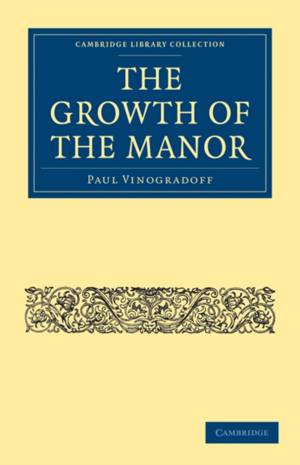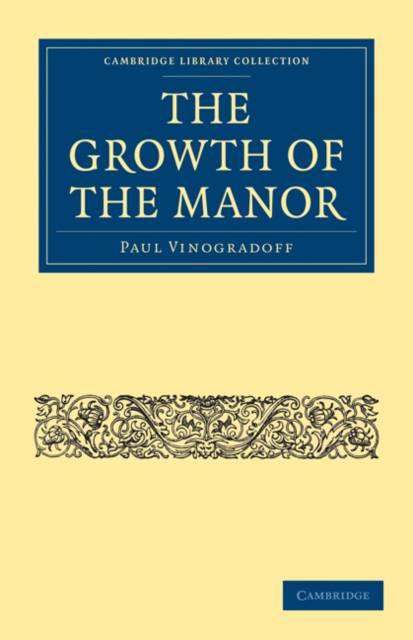
Door een staking bij bpost kan je online bestelling op dit moment iets langer onderweg zijn dan voorzien. Dringend iets nodig? Onze winkels ontvangen jou met open armen!
- Afhalen na 1 uur in een winkel met voorraad
- Gratis thuislevering in België vanaf € 30
- Ruim aanbod met 7 miljoen producten
Door een staking bij bpost kan je online bestelling op dit moment iets langer onderweg zijn dan voorzien. Dringend iets nodig? Onze winkels ontvangen jou met open armen!
- Afhalen na 1 uur in een winkel met voorraad
- Gratis thuislevering in België vanaf € 30
- Ruim aanbod met 7 miljoen producten
Zoeken
Omschrijving
The Growth of the Manor (1905) is one of the key works of the eminent expatriate Russian jurist, Paul Vinogradoff (1854-1925). Expanding on his Oxford lectures, this book attempts to re-establish coherence within English medieval history after the critiques of scholars including Frederic Maitland had supposedly obscured the historical narrative. Tracing the evolution of the manor, Vinogradoff demonstrates how feudal law and tenurial relationships evolved out of more primitive systems of male descent. He claims there was demonstrable progress from a system of communal action and responsibility to one of personal rights and subjection that can be traced through what he calls the 'Celtic', 'Old English' and 'Feudal' periods. The latter system was secured in the Norman Conquest of 1066, although the former continued to exist underneath it. Of particular interest to those studying the Domesday Book, this is also an important text for medievalists and legal historians.
Specificaties
Betrokkenen
- Auteur(s):
- Uitgeverij:
Inhoud
- Aantal bladzijden:
- 400
- Taal:
- Engels
- Reeks:
Eigenschappen
- Productcode (EAN):
- 9781108014502
- Verschijningsdatum:
- 31/10/2010
- Uitvoering:
- Paperback
- Formaat:
- Trade paperback (VS)
- Afmetingen:
- 140 mm x 216 mm
- Gewicht:
- 503 g

Alleen bij Standaard Boekhandel
+ 157 punten op je klantenkaart van Standaard Boekhandel
Beoordelingen
We publiceren alleen reviews die voldoen aan de voorwaarden voor reviews. Bekijk onze voorwaarden voor reviews.











